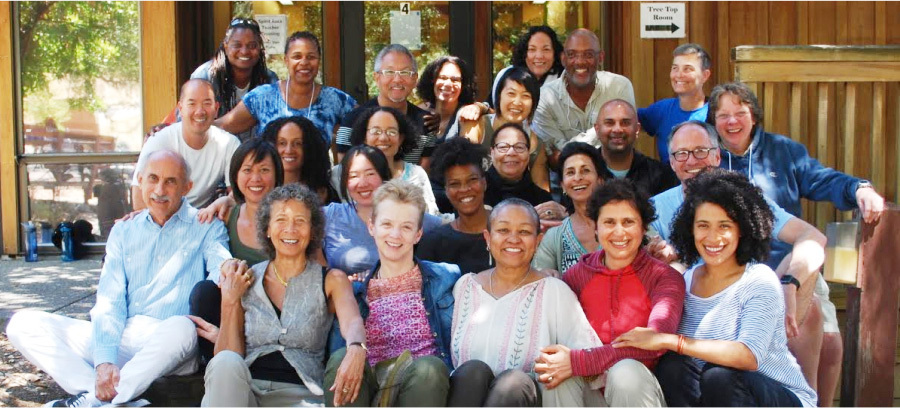Centrality
Our equity work at Spirit Rock is not elective, but central to all leaders and bodies, and needs to be a shared responsibility throughout the organization. Equity, diversity, and inclusion are integral aspects of our living dharma. Unless we institutionalize, embrace, and embody shared values around diversity, equity, and inclusion in all aspects of our culture and our work, the default will be to perpetuate the patterns of institutionalized racism and other “isms” that are dominant in society.
While the issues of institutionalized racism have surfaced most prominently in our teaching work, these issues must not be viewed as particular only to the teachers, but as a reflection of a broader institutional challenge.




